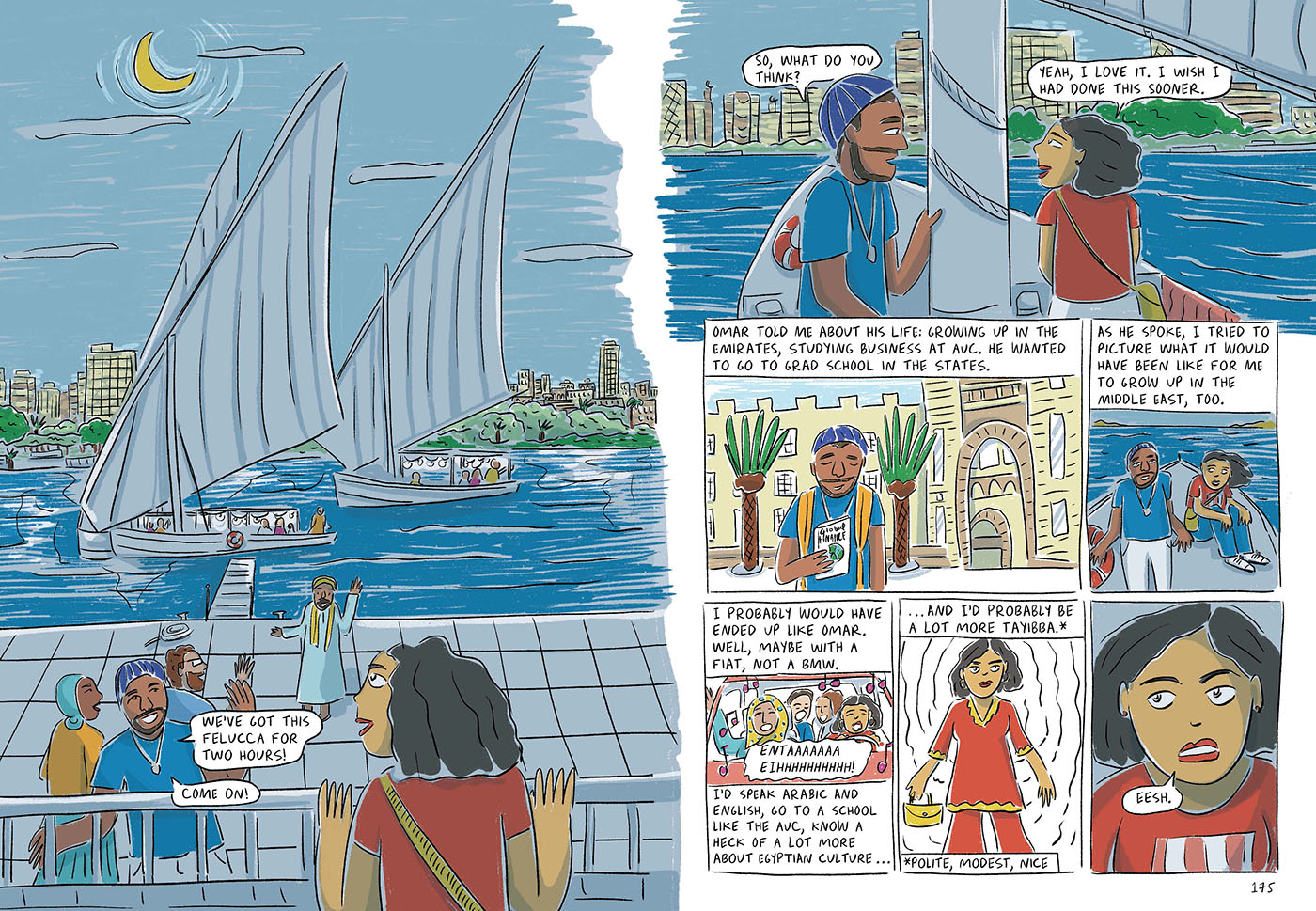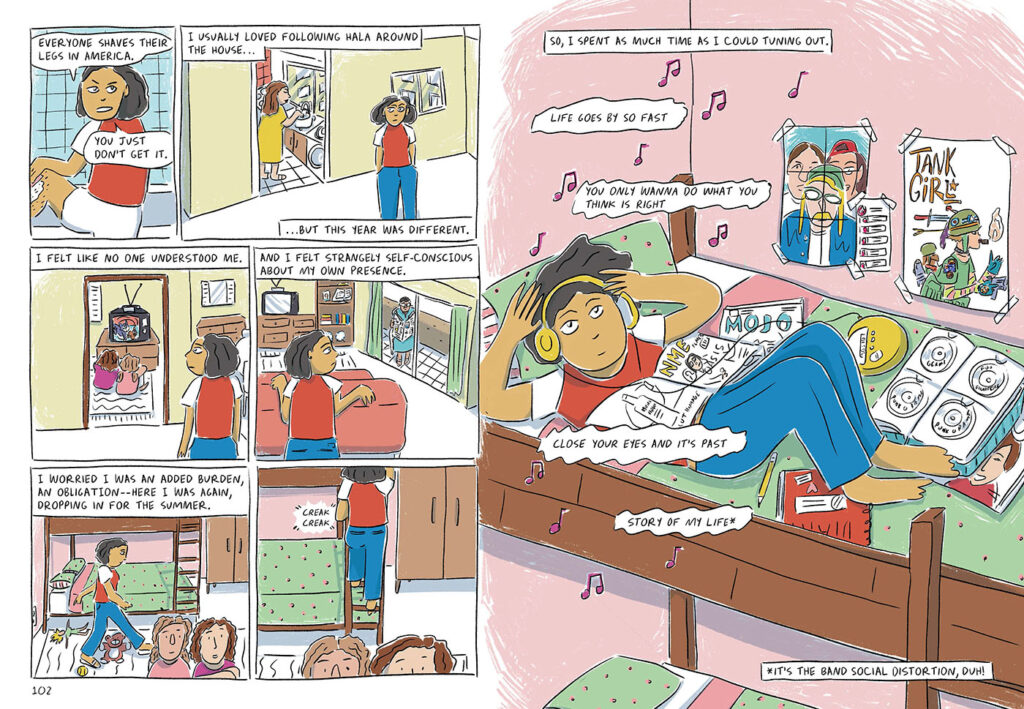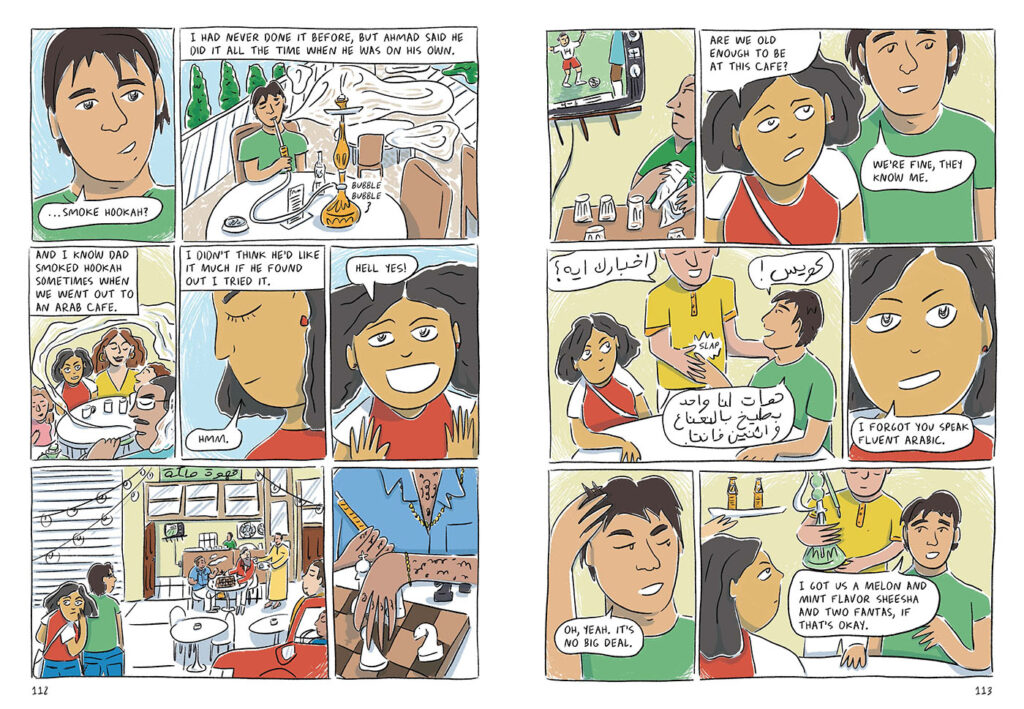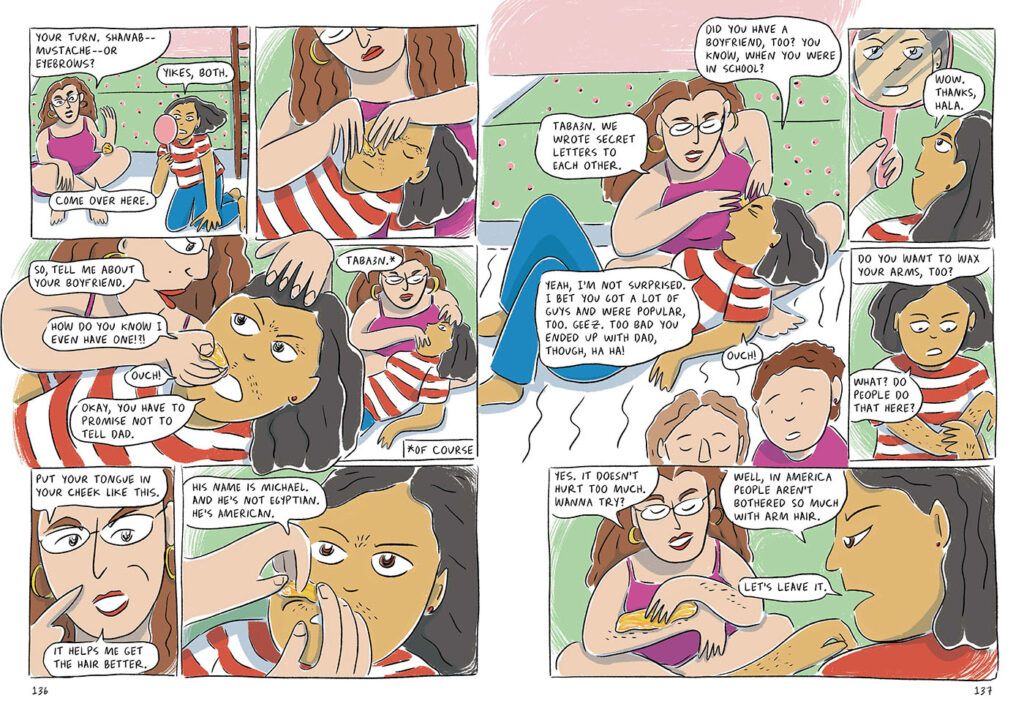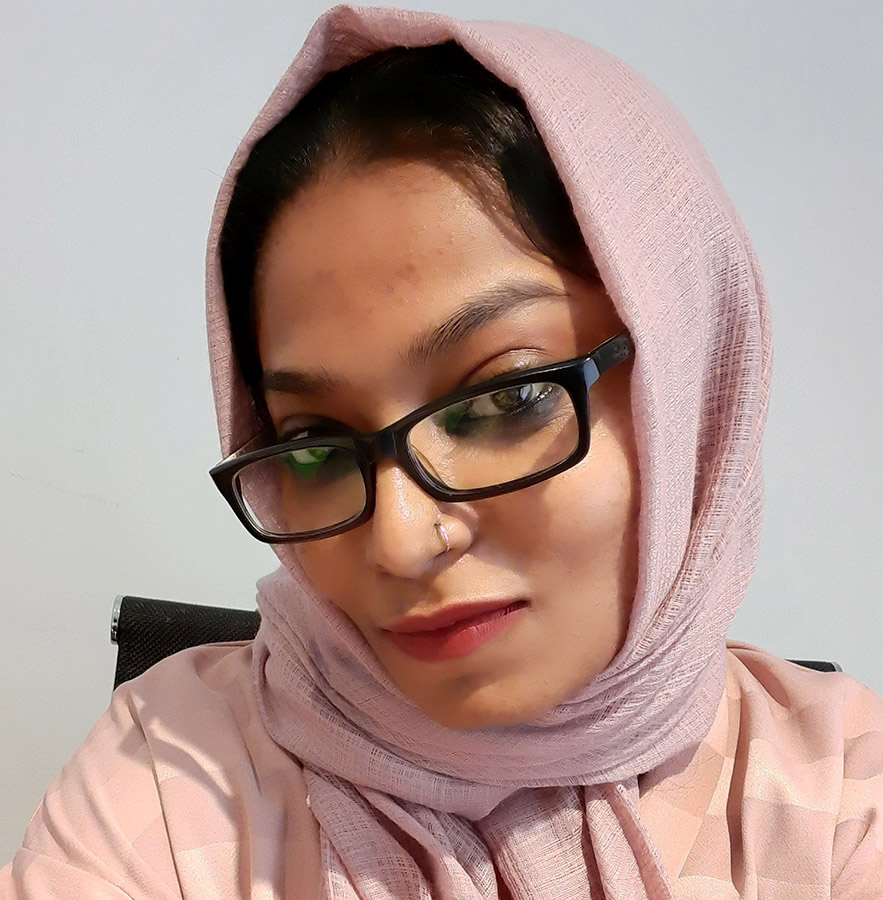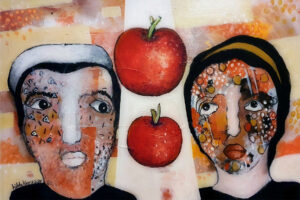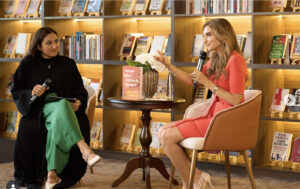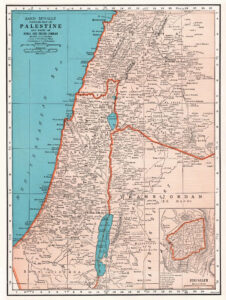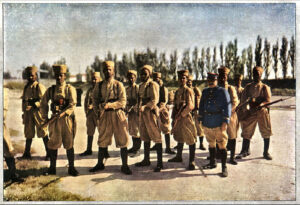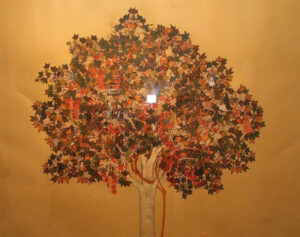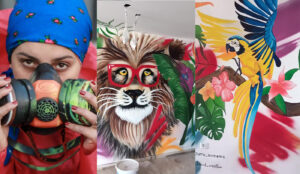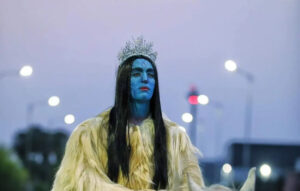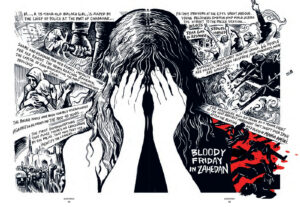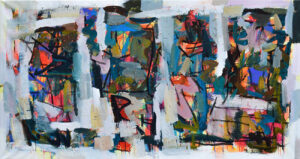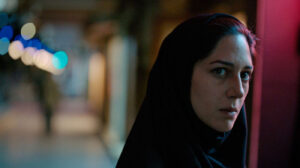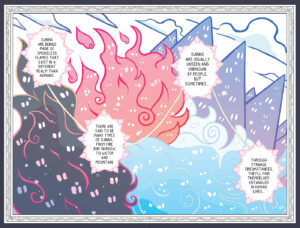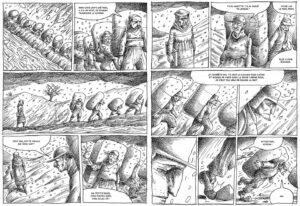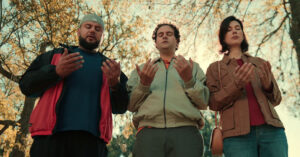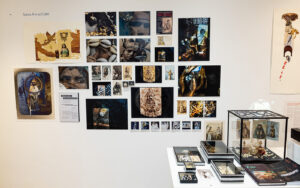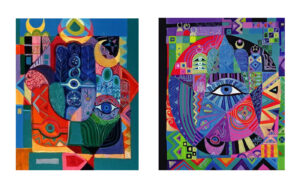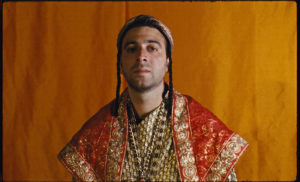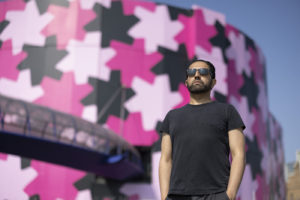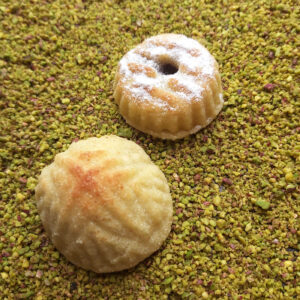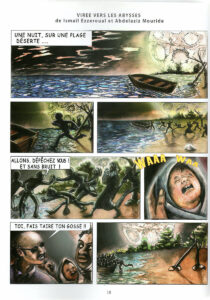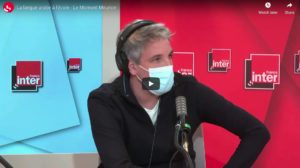
It Won’t Always Be Like This, a graphic memoir by Malaka Gharib
Penguin Random House 2022
ISBN 9781984860293
Rushda Rafeek
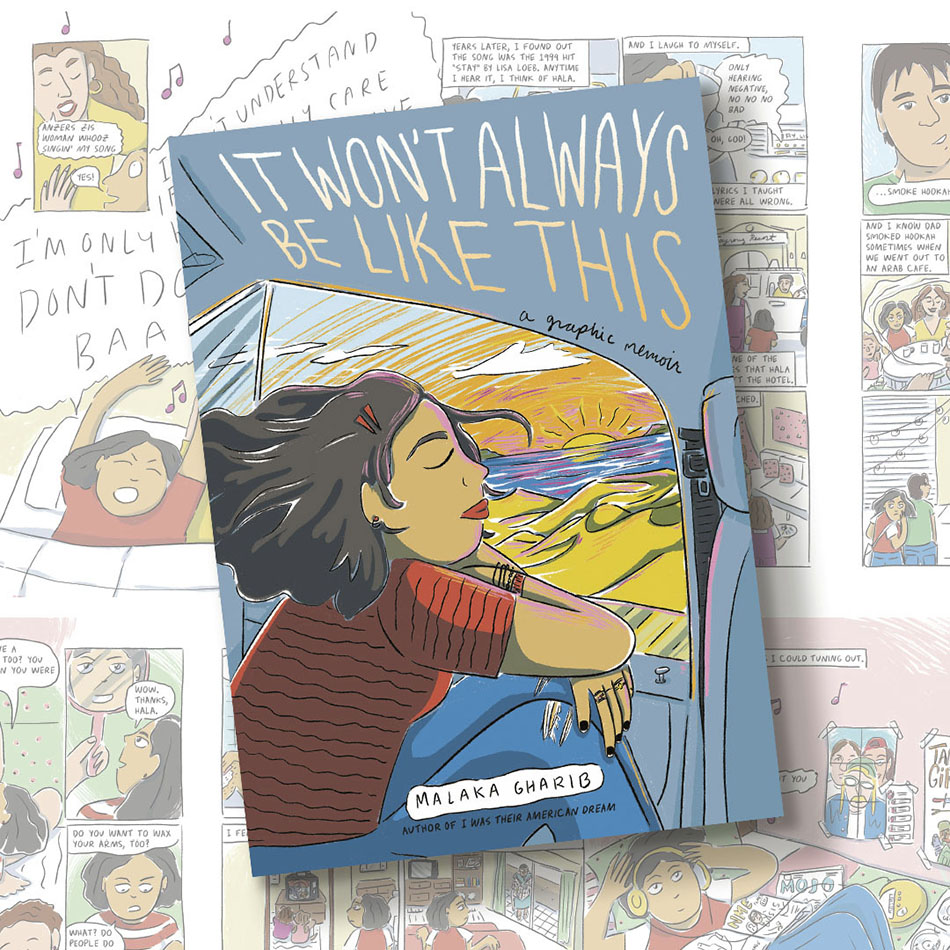
For Malaka Gharib, saying a lot with a little is the key to creating good comics. Even when her thoughts and drawings run free on the page, they should suffice without additional explanation. Looking deeper, it seems evident that the style she has chosen is akin to the work of New Yorker cartoonist Roz Chast, though heavily off-beat and fresh for the eyes. But Gharib points to Marissa Moss, the popular children’s book author, as her inspiration. What is then understood is a ritual carried on since childhood: journaling. This story mechanism influenced by Moss is employed in many of Gharib’s comic strips, aside from the striking facial expressions and finespun hilarity that pop up when least expected.
In truth, it’s difficult to shake off the work she produces as fictitious — which is why readers find themselves stuck in between a quick chuckle and some tears. Gharib’s integration of both texts and images reflects the life she has lived, be it the stinging divorce of her parents or trying to fit in with Arab cousins who smoked hookah and ate stuffed grape leaves.
It’s more than helpful to keep in mind how her experiences prompt important conversations not just among adults but children alike, who come from intricate backgrounds. In her latest graphic memoir, It Won’t Always Be Like This, Gharib — born and raised in the US to an Egyptian father and Filipino mother — returns to Egypt where she spent the summers with her Middle Eastern family. She finds herself in the thick of mirroring a culture that would have otherwise remained nigh obscure in the modern genre of comic literature. Above all, offering a bird’s eye perspective of diverse representation is what scaffolds her narrative. Add to this, the will to defy societal acceptance as a young girl is an expedition in itself. Yet, Gharib candidly handles such topics in spite of the grief and teeth-gritting over marital fissures among her loved ones without the obvious censoring.
Despite having a hectic schedule during the weeks surrounding the book’s release, Gharib generously granted The Markaz Review an interview, which was conducted over an email exchange.
As a graphic memoirist, you have access to both kinds of communication: writing and drawing. Do you draw or write first?
I write first. It’s much easier for me to figure out what I’m trying to say in words before I adapt my ideas to drawings. I’ve tried it the other way around — drawing in sketches or thumbnails first — and let’s just say it’s a lot of wasted paper!
So what was the process like when you started It Won’t Always Be Like This? When did you realize this story had the full potential to develop into a book-length memoir? Have you thought about Arabic and Tagalog translations of it someday?
It Won’t Always Be Like This started out as a two-page nonfiction essay called “The Cigarette,” that I wrote in 2017 for myself, about my adult relationship with my Egyptian stepmother, Hala. That essay was about one particular trip to visit her and my dad and family in Doha, Qatar, and how I realized that she was deeply unhappy in her marriage with my dad. I later adapted that into an eight-page comic. I then adapted that comic into a mini zine called “Lisa Loeb in the Sinai,” about my first encounter with her as a nine-year-old girl. I showed some of these works to a colleague and she encouraged me to explore it for a book, because it was clear that Hala had a strong influence on my life — which is what the latest memoir is all about. No plans yet for translation!
I’m also drawn to your cartooning technique which has a more cartoony spirit than an artsy one. How did you figure out color atmosphere to develop pace?
My style is very open, airy, and light, and I find it very fun to draw using the fewest lines possible to express an emotion or an idea (in the world of cartooning this is called economy of line). I am interested in making sure that every stroke of my pen conveys real emotion or adds to the feeling of the drawing, and that there are no wasted strokes or strokes that have no purpose.
The good thing about cartooning is that it is more important that the artist conveys emotion than getting the drawing factually perfect or life-like. I prefer drawing in black and white, so for my past two books, I have worked with the illustrator Toby Leigh, who is based in London, to bring my drawings alive with shadow and color.
What interests you about Egypt or Egyptians? Why do you want people to listen to the voices of those who speak a language you barely know?
I spent nearly every summer of my childhood in Egypt, I have an Egyptian father, I have an Arab name, an Arab family history, and Egyptian sisters and brothers — so it is impossible to not be interested in that part of my heritage. For many second-generation Egyptians who were born outside of Egypt, it is common not to speak Arabic.
I don’t think that negates our connection to Egypt or our Egyptian identity. The perspectives of the Egyptian diaspora and their offspring deserve examination and representation — we are our own culture in and of itself, and we are pushing the boundaries of what it means to be Egyptian — and for me in particular, what it means to be Egyptian in the United States, a country that has a conflicted relationship with Muslims, Arabs and the Middle East.
Divorce, Diaspora and the Imagination to Cope
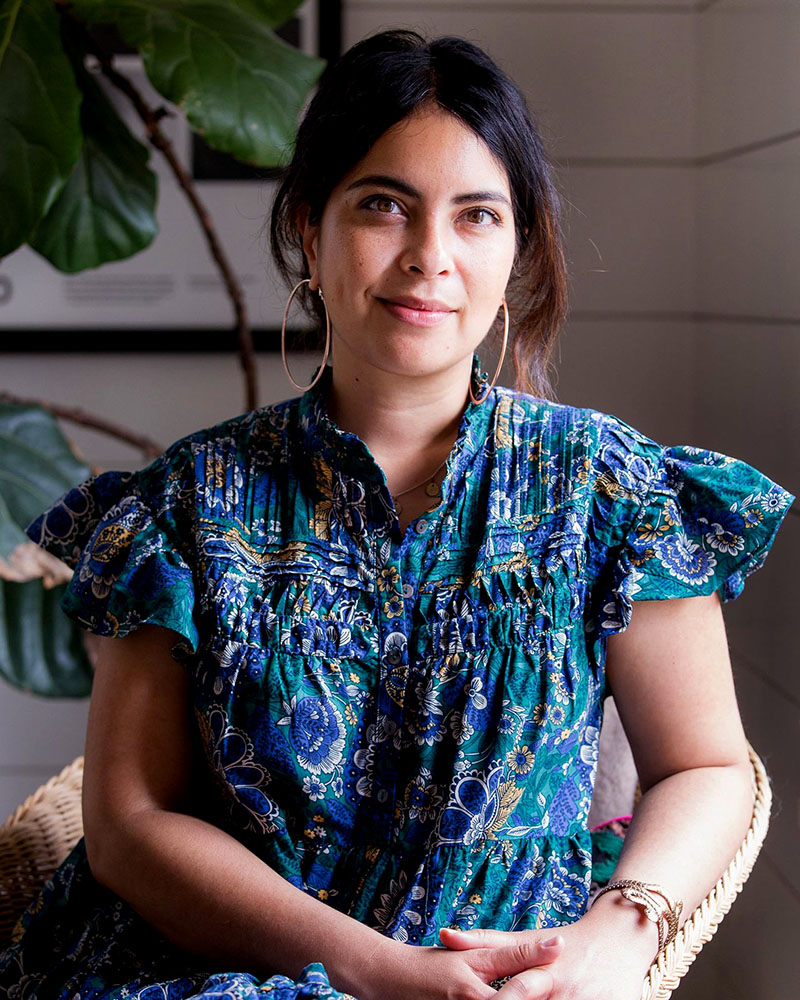
I sensed a great love for humor in your works. But there’s a much bigger matter in question being confronted as you said elsewhere: “of feeling displaced within the family context” that belongs to Arab society. Could you talk a little about that?
This is the story of a first/second generation Filipino Egyptian American kid who is spending time not with her Egyptian family in America, but with her Egyptian family in the Middle East. That’s many degrees of separation in terms of comfort. She grows up in a Filipino American context in Southern California, but is pulled into a wholly Egyptian context — Cairo, embedding life not just with her dad, but her new stepmom…who doesn’t speak very much English. You can imagine how complex that situation is!
Pretty much, yes. Family separation is still a critical issue of our time. We come across homes where children have had a hard time bonding with their (step)parents growing up. But, in the book, you reveal how you and your stepmother Hala shared quite an amiable dynamic. Can I use the word “amiable” here or were there challenges between the two of you?
Hala tried very hard to be a good stepmom to me. She was empathetic to my situation — I was a little girl, growing up without her dad — and she wanted me to like her and feel comfortable around her. I never sensed that she didn’t want me to be there in the summer. And for those reasons, as a child, I took a genuine liking to her — I could feel her authenticity.
Of course, there were several moments that were difficult. I think the age gap between my siblings and me was stressful for Hala. I was a grumpy teenager when Hala was running around taking care of an infant and two young children, plus cleaning the house and cooking. I don’t think I was very helpful around the house or with the kids during that time, which probably led to some resentment on her part. But if she ever felt that way, I didn’t know about it!
Because it is intensely personal and tackles tweenage while steering through a painful chronicle of divorce, I have to ask: did the fear of giving away too much to the public get to you — being that Arab and Asian communities believe such matters are better dealt with behind closed doors?
In the Arab world, as you know, we like to show our best face — we want the outside world to see that things are going great. So I was afraid to tell the story of my dad and Hala’s divorce because I didn’t want to make them look bad. But it was a critical part of the story I wanted to tell about my relationship with them and my summers in the Middle East. To get them on board, I wrote the manuscript of the book and sent it to each of them to get their feedback. I paid my little brother Ahmed, who is in college, to translate every chapter of the book [into Arabic] and forward it to Hala. Both dad and Hala had an opportunity to give feedback on the text — and only then after they were both happy with what I wrote, did I sign the contract to turn it into a book. My family is far more important to me than my art.
You’ve had difficulty pronouncing your name. In I Was Their American Dream I noticed cartoon Malaka’s attempt at self-introducing to a white person as “I am Malaka! Like Monica with an L.” There seems to be a struggle to fit in unless non-white names are Anglicized. Your thoughts on this?
I actually pronounced my last name as “Gharib, like Arab” until I was in my early 20s — when a colleague told me, “you know, you don’t have to do that — you can make them pronounce your name as it sounds.” So only then did I change the pronunciation from “Gharib, like Arab,” to “GHA-reeb.” People don’t get the ghain right, but that’s okay. I’m working on getting people to pronounce my first name right now — but what makes me sad is that it is even hard for me to pronounce with my American accent: MEH-leh-keh. I pronounce it the way my Filipino mother says it, almost as if it was a Tagalog word: MA-la-ka. In Tagalog, “malakas” means “strong” and “malaki” means “big.” So I don’t mind that pronunciation.
Apart from the works you create, you’re also an editor at NPR who has contributed bite-sized comics for their Goats & Soda section. What role does diversity play in the comic world today?
I’m actually an editor and a journalist for Life Kit, an NPR podcast that offers tips on how to make your life better. It’s funny people associate me with my NPR comics, but that is only something I have started doing in my career in the past few years. My bread and butter is editing and writing stories.
Your books are now taught at American schools in Egypt. And some children there identify as a product of interracial marriages. Care to comment on the education experience or its impact on them as young readers or the next generation perhaps?
It’s wild to me that there are kids in Egypt who are reading my book. I hope it helps show Egyptians that there are many different kinds of Egyptians out there — and our voices all deserve to be heard. And for those fellow half-Egyptians out there, I hope you know that your experience as an Egyptian is just as valid and worthy as other Egyptians — and you are enough.
Last question, this one’s about music since you mentioned listening to “cool punk bands.” Are you someone who depends on music to get you in the mood to write/draw? If yes, any favorites from the Arab world?
Music is a really critical part of my emotional landscape when I draw. It helps set the tone and mood for my drawings, and I can’t draw without a good soundtrack! I rely on Danny Hajjar’s Substack newsletter Sa’alouni El Nas for new Arab indie music. And right now I’m super into some bands he recommended: Luay Hijazeen, Tayar, and Kabreet. I also really like Muslim and Hamza Namira.



